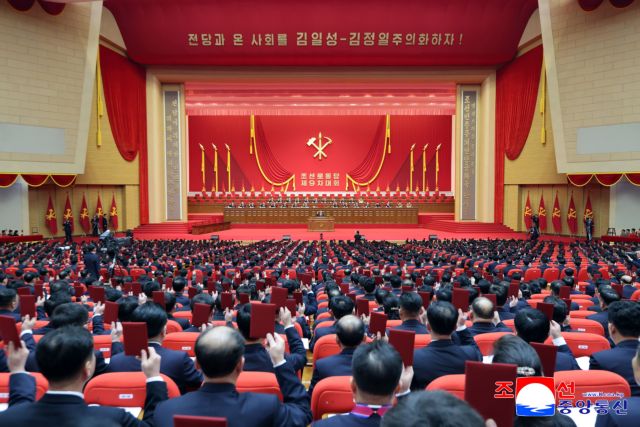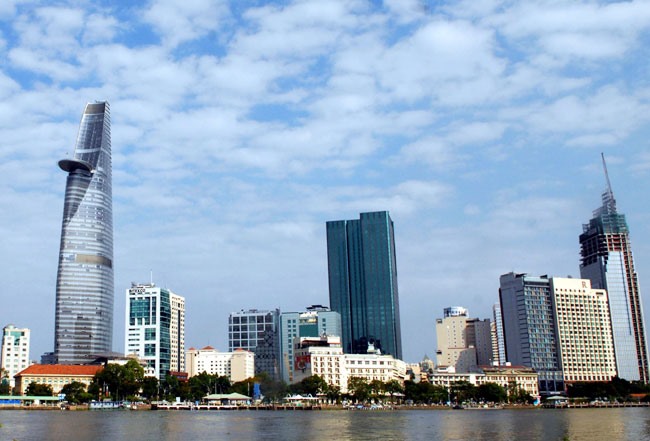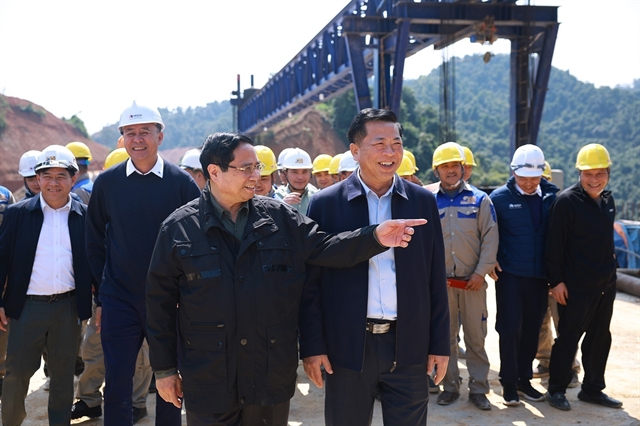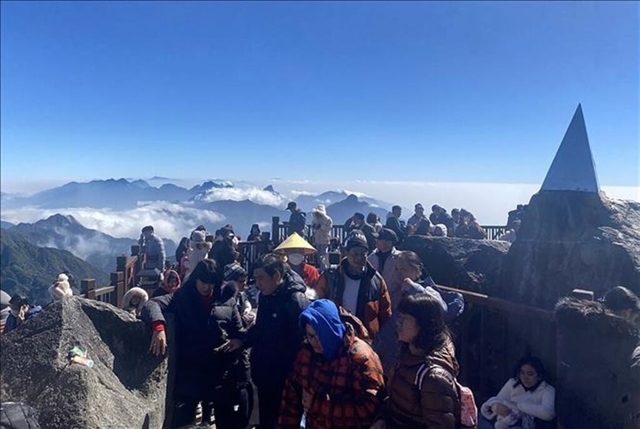 Politics & Law
Politics & Law
.jpg)
HCM City has attained significant improvements in socio-economic development while still dealing with problems inherited from previous years after a year piloting special mechanisms and policies for the city’s development.
 |
| A view of HCM City. — VNS Photo Việt Thanh |
HCM CITY — HCM City has attained significant improvements in socio-economic development while still dealing with problems inherited from previous years after a year piloting special mechanisms and policies for the city’s development.
Prime Minister Nguyễn Xuân Phúc made the remarks while chairing a conference reviewing the one-year implementation of the Politburo’s Conclusion 21-KL/TW and the National Assembly’s Resolution 54/2017/QH14 in HCM City on January 12.
In 2018, the southern metropolis recorded a GRDP growth of 8.3 per cent, higher than the national figure. It welcomed 7.5 million foreign visitors last year, making up half of total foreign arrivals to Việt Nam. The city granted licences for the establishment of 44,000 new enterprises, or 33 per cent of the country’s total. Labour productivity hit VNĐ293 million per worker, 2.92 times higher than the national average. The city’s budget collection reached VNĐ378.5 trillion, rising by 8.65 per cent from 2017. Attracted foreign investment capital was US$7.394 billion.
As the most densely populated city in the country, HCM City managed to maintain social security and order and carry out some special solutions for socio-economic development, PM Phúc said.
HCM City still retains its position as the leading economic locomotive of the country, he remarked, citing its budget contribution of over 27 per cent of the national budget income.
“The city needs to double efforts so it can reach a comparable level to Hong Kong, Singapore and Kuala Lumpur,” he said.
The PM commended the city on its high and quality economic growth, foreign investment capital attraction, investment in science and technology, smart city building, start-up development, and assistance to small- and medium-sized enterprises.
The Government leader, however, warned that the city was lagging behind other major cities in the region in terms of living quality, competitiveness, and urban planning.
The city was struggling with aging infrastructure while its human resources failed to meet development requirements, and many of its major infrastructure projects were progressing at a slow pace, he added.
The equitisation of State-owned enterprises had yet to meet the set goal and crime was getting worse, especially with regards to rampant theft and crimes involving foreigners, he said.
To tackle these problems, the leader suggested the municipal authority adopt a specific plan to implement the Government’s Resolution 01 and the National Assembly’s Resolution 54.
The city needed to be at the forefront of many fields and continue to regard science, technology, renovation, and creation as its pathways to the future, he noted.
PM Phúc suggested central sectors and branches continue giving the city more power to enable it to be proactive in implementing socio-economic development tasks in a “more robust manner”.
He stressed the need for the city to make better planning for urban and transport infrastructure development and better inter-regional linkages, along with addressing traffic issues and fighting crime.
The city should focus on dealing with prolonged pressing problems, especially the resettlement relating to the new urban area of Thủ Thiêm, to strengthen trust and create consensus among people.
Flooding, and road and environment planning in new urban areas needed to be solved, he said. — VNS
.jpg)



